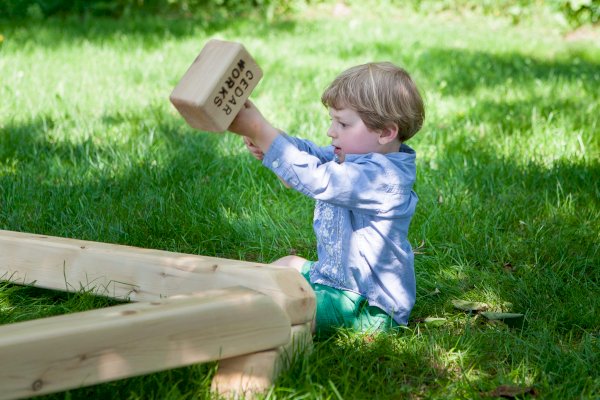The Hard Work of Play
Benefits of Play | 6 years ago

“Play is often talked about as if it were a relief from serious learning. But for children play is serious learning. Play is really the work of childhood.” – Fred Rogers
At CedarWorks, we know that while play is, first and foremost fun, it is also hard work. Obviously, it’s work for us - it’s literally our job. But a child’s job is also to play. It’s vital to their physical, social, and even cognitive development.
Play is how children explore their world, practice making and following rules, learn how to get along with others, enhance their problem-solving skills, and develop both their gross and fine motor skills. Studies have even found that kids who enjoy regular active play do better in school.
When we talk about play, we mean active, unstructured play rather than sports practices or structured play groups. There is nothing wrong with those activities, of course. They can be great for kids, but they don’t provide all the opportunities for problem-solving or using one’s imagination or even the self-governance that unstructured play provides.
During unstructured play, children can be active and get exercise, but they also learn to work and get along with others. When you hear kids discussing, maybe even arguing over, the rules of a game they just made up, they are in the process of learning to negotiate and to compromise - after all, if you want to keep a good game going, you sometimes have to accept that not everything will go your way.
This kind of play also helps kids develop creativity and problem-solving skills as they use their imaginations to create games and invent new worlds in which they might do anything from fending off pirates to running an ice cream shop. That child sprinkling sand on an imaginary ice cream cone is really learning to think quickly and respond to a playmate’s unexpected order of “chocolate ice cream with sprinkles”. Unstructured play creates opportunities for kids to use both their imaginations and their bodies to solve problems without adults stepping in to “fix” things for them.
If you’ve ever watched children when they were really focused on a game and thought, “wow, those kids are playing like it’s their job,” that’s because it is their job. As parents, our job is to support that kind of play.
To learn more about the importance of play, check out the Strong National Museum of Play http://www.museumofplay.org.
#child-development#children
#fun
#play